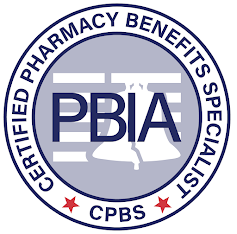News and notes from around the interweb:
- Understanding the Evolving Business Models and Revenue of Pharmacy Benefit Managers. Over time, PBMs have found ways to take advantage of a lack of transparency and oversight to increase their profit, said Sally Greenberg, executive director of the National Consumers League. This report showcases not only the many ways they do this but also just how much money they’re making from these tactics. We must find policy solutions to bring that money — those savings — back to consumers as intended.
- Documents reveal the secrecy of America’s drug pricing matrix. Several people who work in the industry, who asked not to be named due to the confidential nature of coalitions, said most employers, regardless of how big they are, have no idea what they’re giving up when they enter coalitions. Once employers are locked into the coalition, they can’t get a full second opinion on the drug prices they pay, experts said.
 |
| Join the Movement! |
- Pharma Grapples With Best Price Accumulator. A new CMS policy, issued in December 2020 with an effective date of Jan. 1, 2023, requires pharmaceutical manufacturers to “ensure” the benefit of copay assistance programs goes only to patients to maintain the exclusion from best price reporting. If a coupon’s full value doesn’t accrue to the patient, the pharmaceutical manufacturer must count it as a discount to the drug’s Medicaid price.
- 13 million Americans skip prescription drugs due to cost. The report, based on a national survey of U.S. households, outlined the range of obstacles that Americans face in affording needed medications. According to the report, more than 2.3 million elderly Medicare beneficiaries and 3.8 million privately insured working-age adults reported skipping needed treatments because of costs in both 2018 and 2019.
- 340B Program, PAPs Help Ensure SP Rx Success. But those 340B savings don’t magically appear, Dr. Mitchell stressed. His specialty pharmacy has clinical pharmacists embedded in clinics who make sure that orders for specialty medications sent to the internal specialty pharmacy are eligible for 340B savings. They also are responsible for ensuring that orders patients choose to have filled at external pharmacies—or that payors mandate be sent to a specialty pharmacy—still remain in the health system’s contract pharmacy network.
The Certified Pharmacy Benefits Specialist (CPBS) educational offering includes knowledge that is critical to effective management of the pharmacy and medical drug benefit. If you want to learn more, click here.